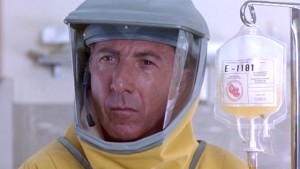Public Health
Public health, one would think, should be a top priority for everyone – right? No one wants to worry about getting sick just from going through their everyday routine. Some people live a high-risk lifestyle but the most of us just want to be able to make it to and from the office during the week and out here or there on the weekends without needing a surgical mask to avoid viruses. Save for vacationing in suspect areas or swimming in the Amazon, this shouldn’t be hard to accomplish.
Public health these days has been a topic for concern in areas like South America, the Middle East, and Africa due to Zika, MERS, and Ebola. With large local populations and many people travelling about the regions certain viruses can be a health concern in a small village or city one day, and a global catastrophe the next. Luckily we have groups like the World Health Organization and Centers for Disease Control and Prevention that get the best medical minds together in these cases to find vaccines and help to contain outbreaks. However, sometimes our goal to protect public health has to be weighed against other goals – such as limiting government control in health and medical sectors and adhering to religious and cultural traditions. If you’ve been following the news lately you can probably infer that I’m talking specifically about Zika.
“What is Zika, anyway?”
First discovered in Uganda in 1947 and named after the forest in which it originated, Zika is a virus that is most commonly spread by mosquitos (often found in poor regions without running water) and can affect brain development in fetuses leading to a birth defect called microcephaly. Aside from its potential effect on fetus health in pregnant women its overall symptoms are fairly mild, resembling a common fever that’s recommended treatment is equally similar. With rest, over-the-counter fever reducers, and plenty of liquids the symptoms can subside within a few days. Most recently the virus has been causing concern in Brazil due to the upcoming 2016 Olympics set to take place in Rio de Janeiro. It’s prevalent in one of the most destitute regions of the country and is also spreading to other areas of South and Central America as well as the Caribbean. There have been cases reported in the Unites States after travel to more affected countries, but as of yet no reports suggest that it has been contracted in the US (not including US territories). It too has been suggested that Zika can be transmitted sexually, causing concern in the realm of birth control and even abortion in some cases due to the possibility of it leading to miscarriage.
So what’s the big deal, you ask? All things considered, this is extremely uncommon in the US at this point, and even in areas where Zika is considered a major public health concern the percentage of babies born with microcephaly is still low. Well, the potential health risk to women has caused a lot of groups to recommend that women in affected areas attempt to avoid becoming pregnant for the next few years due to fear of infection. For many this might be considered a reasonable method of preventing possible birth defects, however in the developing world contraceptives that we see as readily available can be very scarce. Others methods being ineffective can cause inadvertent conception in women who have been infected with the virus and drastically affect the health of their baby.

Dustin Hoffman from the film Outbreak.
Again, this is still something far from the conditions in the 1995 film Outbreak. What I’m calling into question is the role that government and religion seem to, at least in some people’s eyes, play in this type of health issue. On one side of the spectrum people would say it’s ridiculous for the government to impose on your personal life and tell you to avoid getting pregnant due to the small possibility that you might be affected by a virus. On the other hand some of the most affected regions are of the religious fiber that forbids contraception, making it a moral dilemma for some. Another aspect of the situation that transcends religion and government is the question of abortion in cases where it can be determined that an unborn baby’s brain is developing abnormally due to the mother’s infection. One would think that at the end of the day people would want to be healthy, happy, and have a healthy, happy family. Sometimes we do need to make tough choices when it comes to our moral or political views on things we’re confronted with, but what’s more important? Defying big government involvement in public health, appeasing your priest by not getting an abortion, or choosing to do the best thing for yourself and potentially your child by practicing common sense? Isn’t any group that would stand in the way of disease prevention and control directly, or at the very least indirectly, sacrificing public health to the benefit of their own personal views? Politics and religion are, of course, two of the biggest, hot-button issues on which people hold opinions. But when they stand in the way of the one thing that everyone should want above all – the health and well-being of their nation and their people – shouldn’t cooler heads prevail?


